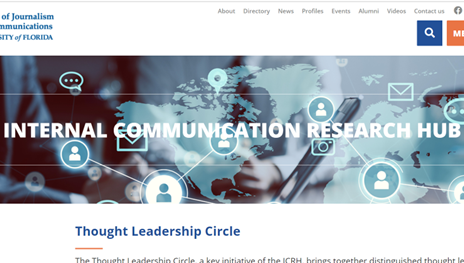Company L, with over 5000 employees across 10 nations, launched a learning portal to make learning anytime and anywhere. This initiative is led by the HR Head and the entire leadership team is backing the program as part of a larger intervention to drive cultural transformation within the firm. Despite the fanfare, the branding (snazzy posters and photo booths in the offices), and incentives (staff given cool freebies like mousepads and movie vouchers) during the launch, usage of the portal is poor.
Having spent millions on an expensive solution, the CEO is upset to see that the initiative isn’t perceived as valuable by staff. She calls for an urgent meeting to understand what the core issues are and why the change isn’t going as planned.
Below is a scenario played out in the board room. Reflect on the situation and share your thoughts on the implications for change management and what it means from a communication perspective. There are no right or wrong answers – so feel free to share your views!
CEO: “Thank you for joining this meeting at short notice. As you know, I am quite concerned about the uptake of the learning platform. This is so crucial for our cultural transformation and the change management doesn’t seem to head in the right direction”.
HR Head: “I understand your concern. We rolled it out across the organization with your leadership message and Town Hall. Followed by conversations with managers and then a training session for all staff where they could explore the system and ask questions. Since it is a global launch, we found some slowness with a few regions, which we are hoping to address.”
CEO: “Then why are we having just 20% of employees participating – isn’t that a very low participation rate? Isn’t this platform valuable to them?”
Business Head: “Let me chime in. There are a few issues at play. We recently went through a reorganization and the layoffs left a bad impression. The teams have a lot on their plate with limited resources on hand plus change fatigue has set in – we introduced the performance management system, then the referral program, and reset the compensation packages”.
CEO: “Didn’t we factor in the timing and challenges?”
HR Head: (looking to the Program Manager) “Maybe, our Program Manager can share his views”.
Program Manager: “We did a stakeholder analysis and in the discovery phase, the managers weren’t completely bought into the need. It took a lot of conversations for them to agree to this change but we were unsure. Their focus is on getting the backlog of projects completed and less on giving staff time to learn and develop – which is understandable”.
CEO: “Isn’t this change beneficial for managers and don’t they see it that way?”
HR Head: “We did ask our employees, and all were excited to have this new platform.”
CEO: “What does ‘excited’ mean?”
HR Head: “The feedback was positive and all seem to want this”.
Business Head: “I believe they were keen to have this additional platform to upskill and enhance their development. We have shown them data points on how to learn on the platform. Strangely, I am unsure why the participation is low”.
CEO: “Is liking equal to acceptance? Don’t our staff trust their managers? How do we know the staff was bought-in to the change?”
HR Head and Business Head look at each other, hoping the other will respond. There is silence.
CEO: “Can we get a deeper understanding of the resistance from managers and staff? How can we take our team along? How can we land the change successfully? With the investments of time, funds, and resources we have made, it is imperative we find a solution to also sustain the change over time”.
The group decides to reconvene after addressing the issue at hand.
Whose change is it anyway?
What must the group do to resolve this change hurdle? What are the key issues? Which interventions will work? Share them here.
#change #changemanagement #emotionalintelligence #resistance #results #alignment #leadership #changeapproach #changesuccess #sponsorship #culture #assessment #purpose #peoplechange



